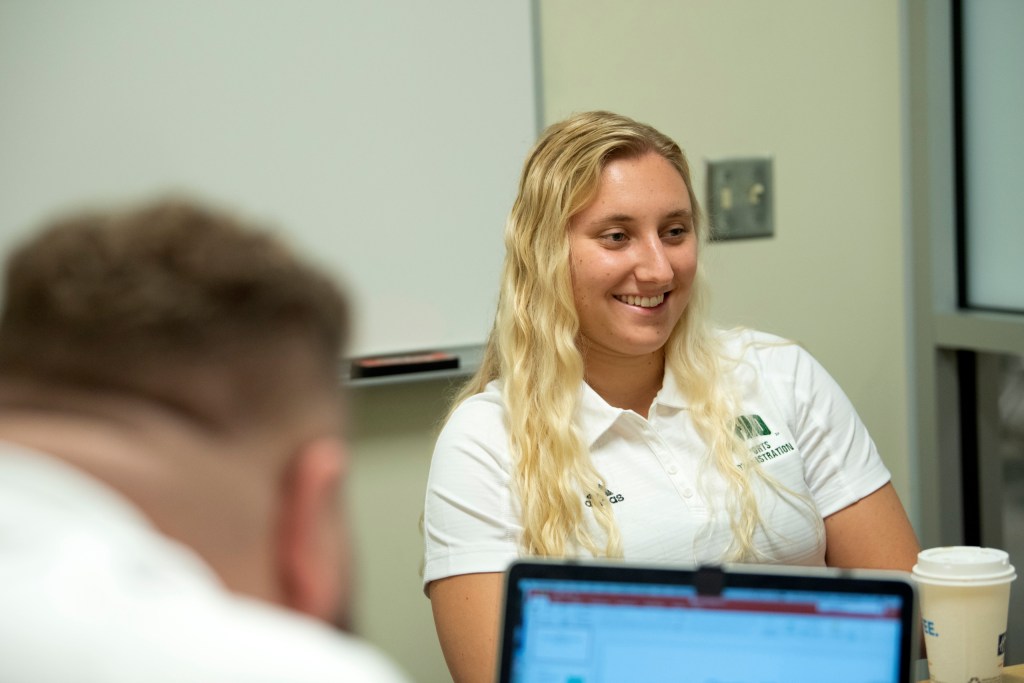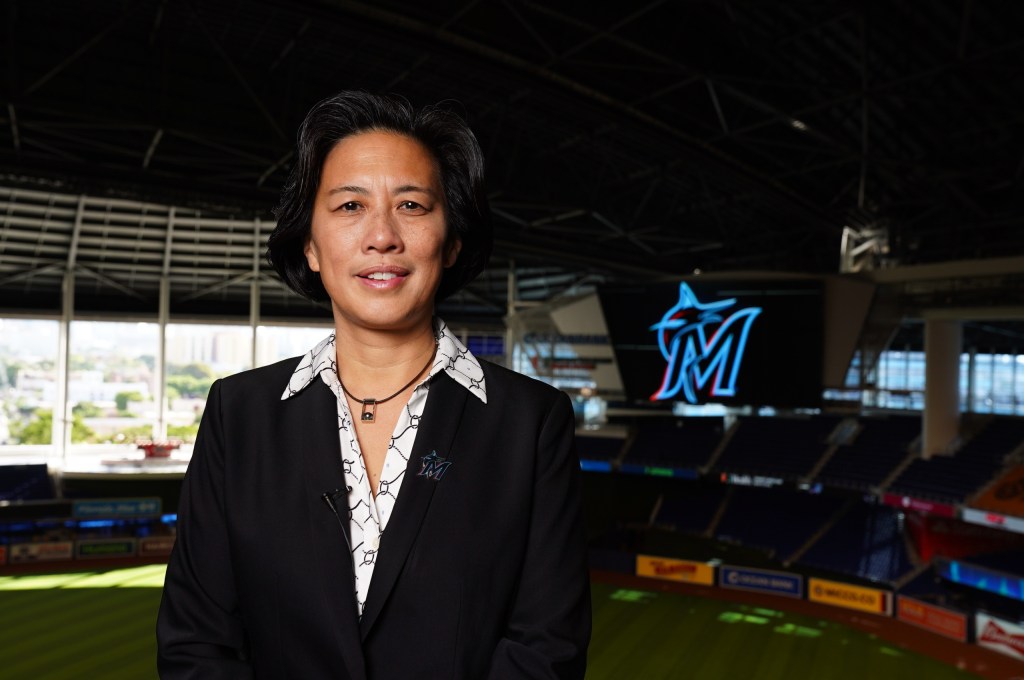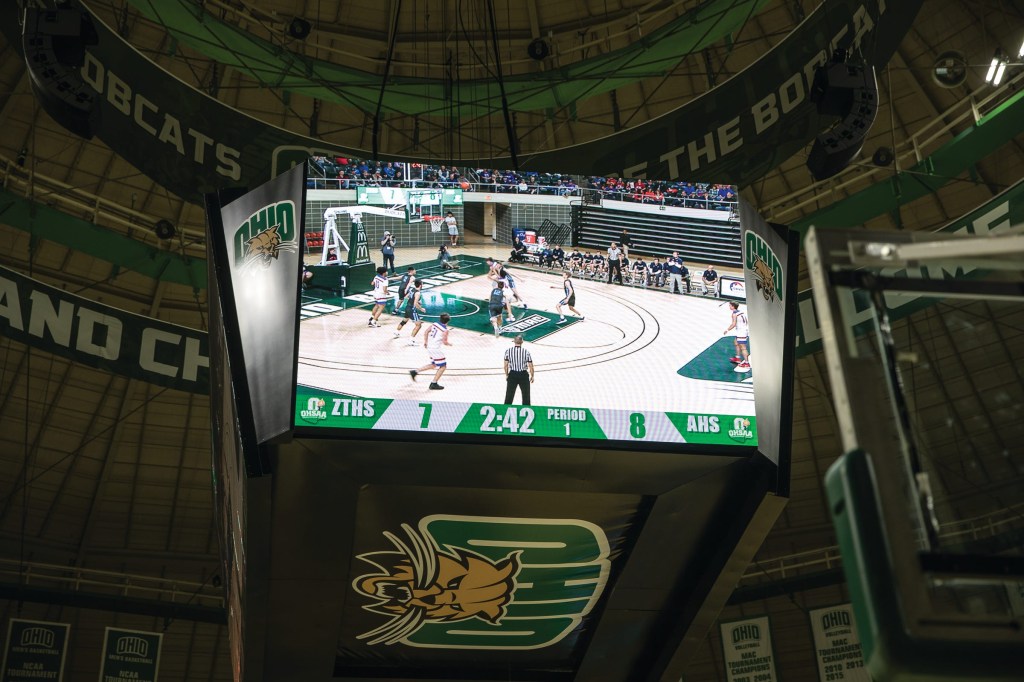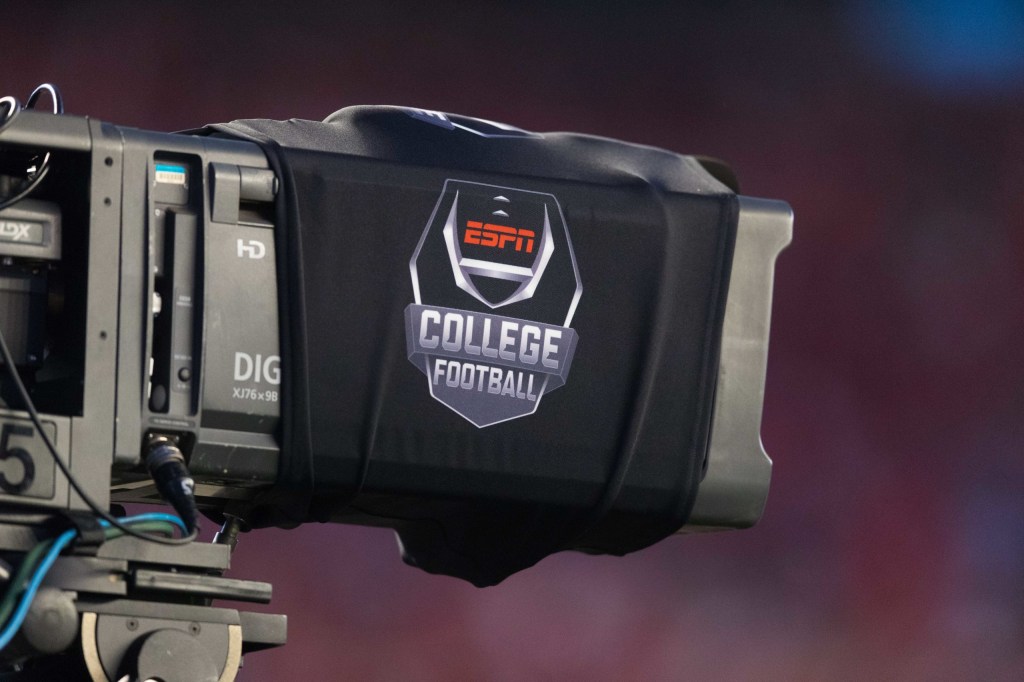This post is part of the #YPSportsChat Blog Series! This series will give young professionals an inside look at the intricacies of the sports business world and advice on how to navigate it.
By Andrew Sproul, @andrewsproul90

A little over a year ago, I walked into Derick Stoulil’s office to have a conversation regarding my senior year and how to utilize the time I had left to advance my career. I went into that meeting thinking the advice I would get would be to get a full-time job and work before going to grad school because my biggest concern was figuring out how I would be able to finance that luxury.
I came out of that meeting with a clearer understanding of what I needed to do to prepare for grad school, and the new task of researching graduate schools with an athletic administration program, and to look for graduate assistantships in marketing. Since then, I have learned over the past year as I’ve transitioned from the mere idea of going to grad school, to actually making this desire into a realty. Below you will find what I have learned in hopes that you can use it to help in your search and career goals.
Networking

I can’t even begin to stress how important networking has been during my search. Through reaching out to friends of friends, I have been able to find out about schools I would never have considered, as well as rule out others that I had previously been interested in.
I have been expanding my network through the use of co-workers’ contacts, Twitter chats and participating in the NACMA mentorship program, where I’ve gained many valuable insights from working closely with my mentor. I am thankful for all those who I have come in contact with and I have met many helpful and supportive friends in all realms of the Sports industry.
Want more great content like this? Be sure to subscribe to our newsletter!
If you’re shy, I implore you not to be afraid to step outside your comfort zone! This industry is full of people who are more than willing to give you a hand when needed, working on the belief that what goes around, comes around.
Resumes and Cover Letters

Throughout the past year, I have really come to learn the value of having a good cover letter and resume. Before an invitation to interview has been extended, a cover letter and resume are your first impression. As tedious as it may be to write, rewrite, and constantly update these documents, their significance should never be underestimated. After all, this is the only way that a graduate school or future employer is going to know anything about you, assuming you don’t have a strong mutual connection.
In your cover letter and resume, it is very important that you focus on your achievements without coming across as arrogant, with a balance between confidence and humility. If there is a way to provide specific quantifiable results, I strongly advise that those be used. Potential employers want you to produce results and Grad Schools would like to see your professional achievements and by providing these numbers, you will have a great talking point during an interview. There is a wide variety of ways to format a resume and cover letter, but the most important thing is to always have a second set of eyes comb through them thoroughly to bring any mistakes to your attention and to provide suggestions.
The Interview

This is your time to shine! Regardless of how you feel about your qualifications for the position, be confident and show that you have good people skills. If at all possible, make sure that you can address everyone on the panel by name and go into the interview knowing as much as possible about the organization you are interviewing with and what they have been doing. Show that you care about the job and how you will be of benefit to your potential employer.
This is an extension of your resume and a chance to clarify any questions they may have, as well as expand into greater detail about your achievements and accomplishments. When interviewing with a Grad School, talk about how you will be able to apply the education you are seeking and how you will be an ideal match to that school’s image and mission statement.
Do You Fit

There have been many schools that I have looked at and I have trimmed a list of fifty schools down to five throughout the course of the past year, and every cut was a hard decision to make.
At some schools, I loved the contacts I had but the graduate recruiters seemed like they weren’t valuing my inquiries, or I discovered that the school had certain priorities or “politics” that I didn’t agree with. It was disheartening when either situation occurred. At other times, I liked the school but the location was in a place that I wouldn’t feel comfortable taking my wife to. Pay close attention to what your intuition tells you, and know that it’s perfectly okay to rule out a place that you have concerns about.
You don’t want to end up somewhere that won’t be a good fit for you and your family because the last thing you want is to dread your choice and leave you or your loved ones feeling resentful about your current circumstances.
I’ve learned a lot over the past year about networking, the interview process, and prepping to enter grad school. While I’m anxiously waiting to see exactly where I’m going to be for grad school, I’m comfortable with the options I have and look forward to learning more about working in college athletics.




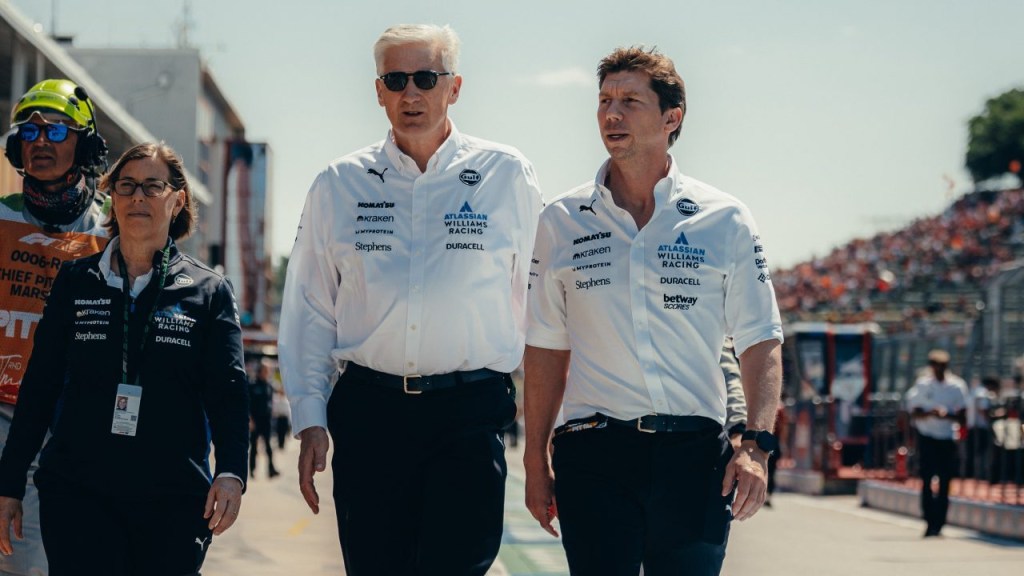

![[Subscription Customers Only] Jun 15, 2025; Seattle, Washington, USA; Botafogo owner John Textor inside the stadium before the match during a group stage match of the 2025 FIFA Club World Cup at Lumen Field.](https://frontofficesports.com/wp-content/uploads/2026/02/USATSI_26465842_168416386_lowres-scaled.jpg?quality=100&w=1024)
![[Subscription Customers Only] Jul 13, 2025; East Rutherford, New Jersey, USA; Chelsea FC midfielder Cole Palmer (10) celebrates winning the final of the 2025 FIFA Club World Cup at MetLife Stadium](https://frontofficesports.com/wp-content/uploads/2026/02/USATSI_26636703-scaled-e1770932227605.jpg?quality=100&w=1024)


